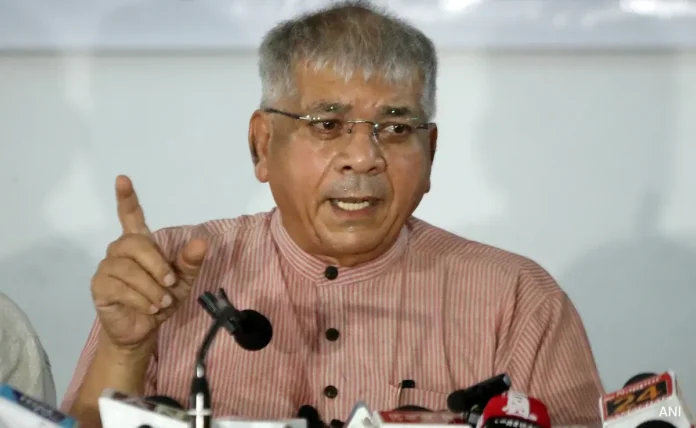Vanchit Bahujan Aghadi (VBA) President Prakash Ambedkar has voiced strong concerns over the potential passage of the proposed ‘One Nation, One Election’ bill, set to be reviewed by a Joint Parliamentary Committee (JPC). Addressing reporters, Ambedkar warned that the implementation of the bill could mark the “beginning of the end for political parties” in India.
Key Statements
- Threat to Democracy and Political Diversity:
Ambedkar criticized the bill for potentially undermining India’s political diversity, stating, “The future of this country is at stake if this bill is passed. The end of political parties will begin.” - Impact on Federal Structure:
He echoed opposition concerns that the bill jeopardizes India’s federal structure. “The federal structure has already ended. States are financially dependent on the Centre because of GST. Their economies have withered away,” he said. - Dictatorship Concerns:
Ambedkar alleged that the move signals the “beginning of dictatorship” and urged the Congress party to take a firm and unwavering stand against the bill.
Legislative Developments
The Constitution (One Hundred and Twenty-Ninth Amendment) Bill, 2024 was introduced in the Lok Sabha by Law Minister Arjun Ram Meghwal. The bill seeks to amend the Constitution to implement simultaneous elections across the country.
- Parliamentary Voting:
- In the vote for introducing the bill, 269 members voted in favor, while 196 opposed it.
- Following the vote, the bill was referred to a JPC, as suggested by Union Home Minister Amit Shah.
- Additional Legislative Amendments:
Meghwal also introduced amendments to the Government of Union Territories Act, 1963, Government of National Capital Territory of Delhi Act, 1991, and the Jammu and Kashmir Reorganisation Act, 2019. These changes aim to align assembly elections in Delhi, Jammu & Kashmir, and Puducherry with the ‘One Nation, One Election’ framework.
Broader Implications
The proposed bill aims to synchronize elections across Lok Sabha, state assemblies, and union territories, potentially reducing electoral costs and ensuring governance continuity. However, critics argue that it threatens the democratic framework, weakens federalism, and centralizes power.
Opposition’s Stance
Several opposition parties have expressed concerns about the bill:
- Threat to Federalism:
The opposition has consistently highlighted the erosion of state autonomy under the GST regime and further fears centralization with simultaneous elections. - Electoral Challenges:
Experts argue that logistical challenges, risks to voter representation, and disruption of state-specific issues are significant concerns.
Next Steps
With the bill heading for scrutiny by a JPC, debates around its constitutional viability and political impact are expected to intensify. As stakeholders deliberate, the future of the ‘One Nation, One Election’ initiative remains uncertain.


